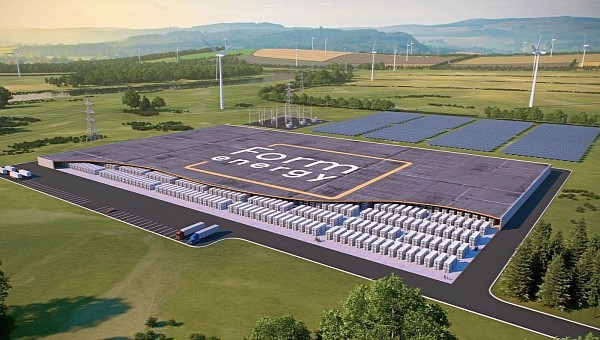Started in the labs at MIT, Form Energy is the company that improved a 140-year-old battery technology to revolutionize energy storage. Its iron-air battery, which is 10 times cheaper than current Li-ion cells, will start production in 2024 at a new facility that’s being built in West Virginia.
Li-ion batteries may be today’s best energy storage solution, but they are far from perfect. This is why scientists constantly develop new technologies, some more promising than others. Among those less popular are the metal-air batteries, which were first designed in 1878. If you’re unfamiliar with this battery type, the zinc-air cells used in hearing-aid devices are a variation of the metal-air cells. Current metal-air batteries are not rechargeable because they begin to corrode pretty quickly once the airflow starts.
A team of researchers at MIT found a way to reverse the corroding process, so the rechargeable iron-air battery development started. The iron was chosen because it is cheap and abundant, making the batteries truly affordable. The researchers called the process “reverse rusting,” allowing for efficient storage and release of energy. Current estimates indicate that iron-air batteries could cost around $20 per kWh of capacity, compared to up to $200 per kWh in the case of Li-Ion batteries.
Iron-air battery characteristics make it unsuitable for electric vehicles because iron is heavier than lithium. Also, they have a slow charge and recharge cycle, so forget fast charging. Nevertheless, they are perfect for grid-level energy storage, especially as they excel at long-term energy storage. Because they are slow, they cannot handle demand spikes, so they need to be doubled by Li-ion packs. Nevertheless, they can deliver more than 3 MW output capacity per acre, which is nothing to scoff at.
The scientists that invented the iron-air rechargeable battery founded Form Energy, a startup that aims to commercialize the technology. When we first wrote about their work, they were on the way to starting commercial production of a low-cost iron-air battery by 2024. In the meantime, they attracted investors interested in their technology, including Bill Gates’s Breakthrough Energy Ventures and steel giant ArcelorMittal. They are one step closer to fulfilling their objectives with the new factory they are building in West Virginia.
The $760-million project will occupy 55 acres of property along the Ohio River in Weirton, West Virginia. The city was one of America’s most important steel towns, and this could help Form Energy source the iron needed to manufacture the batteries. The company has received a state financial incentive package worth $290 million to set foot in West Virginia and will create 750 jobs when the battery factory operates at full capacity. This is projected to happen in 2024, which is in line with initial plans announced last spring.
A team of researchers at MIT found a way to reverse the corroding process, so the rechargeable iron-air battery development started. The iron was chosen because it is cheap and abundant, making the batteries truly affordable. The researchers called the process “reverse rusting,” allowing for efficient storage and release of energy. Current estimates indicate that iron-air batteries could cost around $20 per kWh of capacity, compared to up to $200 per kWh in the case of Li-Ion batteries.
Iron-air battery characteristics make it unsuitable for electric vehicles because iron is heavier than lithium. Also, they have a slow charge and recharge cycle, so forget fast charging. Nevertheless, they are perfect for grid-level energy storage, especially as they excel at long-term energy storage. Because they are slow, they cannot handle demand spikes, so they need to be doubled by Li-ion packs. Nevertheless, they can deliver more than 3 MW output capacity per acre, which is nothing to scoff at.
The scientists that invented the iron-air rechargeable battery founded Form Energy, a startup that aims to commercialize the technology. When we first wrote about their work, they were on the way to starting commercial production of a low-cost iron-air battery by 2024. In the meantime, they attracted investors interested in their technology, including Bill Gates’s Breakthrough Energy Ventures and steel giant ArcelorMittal. They are one step closer to fulfilling their objectives with the new factory they are building in West Virginia.
The $760-million project will occupy 55 acres of property along the Ohio River in Weirton, West Virginia. The city was one of America’s most important steel towns, and this could help Form Energy source the iron needed to manufacture the batteries. The company has received a state financial incentive package worth $290 million to set foot in West Virginia and will create 750 jobs when the battery factory operates at full capacity. This is projected to happen in 2024, which is in line with initial plans announced last spring.






